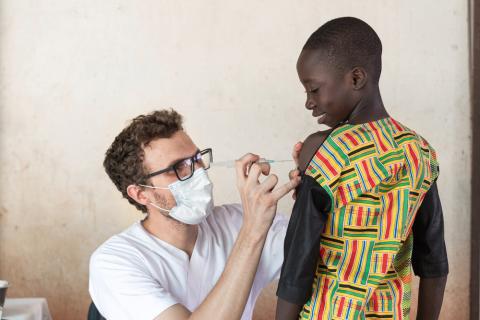Monoclonal Antibody Found Protective Against Malaria

Photo: Riccardo Mayer/Shutterstock
One injected dose of an experimental malaria monoclonal antibody was 77% effective against malaria in children in Mali during the country’s six-month malaria season. The findings come from a mid-stage clinical trial of an investigational monoclonal antibody developed by NIH scientists. Results appear in the New England Journal of Medicine.
“A long-acting monoclonal antibody delivered at a single health care visit that rapidly provides high-level protection against malaria in these vulnerable populations would fulfill an unmet public health need,” said Dr. Jeanne Marrazzo, NIAID director.
The clinical trial assessed two dose levels, with 19% of the 300-mg-dose group and 28% of the 150-mg-dose group developing symptomatic malaria, providing protective efficacy of 77% and 67% against symptomatic malaria, respectively. Among children who received placebo, 81% became infected with Plasmodium falciparum, and 59% had symptomatic malaria during the six-month study period.
Malaria parasites such as P. falciparum are transmitted to people by mosquito bites. In 2022, the P. falciparum parasite caused a majority of the nearly 250 million estimated cases of malaria globally and most of the more than 600,000 malaria deaths, according to the World Health Organization. Most malaria cases and deaths are among children in Africa.
In 2020, scientists at NIAID’s Vaccine Research Center isolated the antibody from a volunteer who had been vaccinated with an experimental malaria vaccine. The antibody was modified with a mutation that prolonged its durability in the bloodstream following administration.
The trial in Mali took place in two parts, first to assess safety in a small number of adults and children, and then in a larger clinical efficacy trial involving 225 children. The efficacy trial included healthy children ages 6 to 10 years, who received a 300-mg dose or a 150-mg dose or a placebo.
NIAID led the clinical trial in conjunction with the University of Sciences, Techniques and Technologies of Bamako, Mali, through NIAID’s International Centers of Excellence in Research program.
